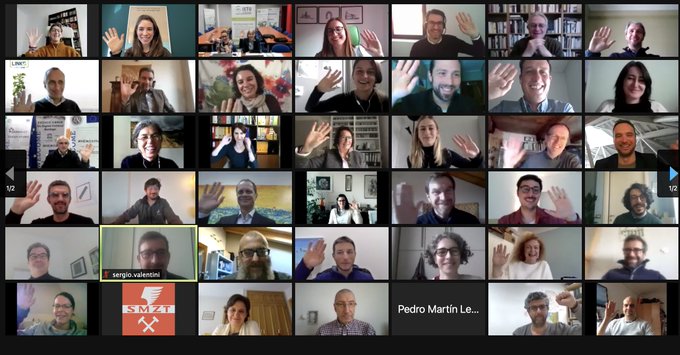TExTOUR project celebrated its launch this week with an online meeting in which the consortium, made up of 18 European partners, have taken part. This project, based on cultural tourism strategies to support the socio-economic policies of the participating countries, is led by Fundación Santa María La Real.
Cultural tourism plays a crucial role in today’s economies, representing around 37% of the total tourism sector, with an annual growth of around 15%. This impact on the economy can be capitalized on by certain regions and sites in the EU and have high cultural, social and environmental potential.
This impact not only depends exclusively on the existence of a historical heritage, but it also related to other synergistic factors such as know-how, ICT, gastronomy, identity, local culture, values, intangibles heritage or other singularities.
The project partners will design and validate policies and strategies based on cultural tourism with a positive impact on the territorial socio-economic development.
TExTOUR uses ICT and social innovation tools to work with eight cultural tourism pilots in lesser known areas to conceive and design collaborative work methodologies for the development of cultural tourism strategies. Each pilot will establish laboratory communities, made up of a wide, range of stakeholders with a relevant role in the development of the cultural tourism sector. Stakeholders are guided through these laboratories for the implementation, monitoring and validation of the strategies.
The project develops procedures, services and tools and carries out the activities proposed in the methodology. Its results are used to prepare a modular and scalable EU action plan for the development of cultural tourism. In parallel, a technological platform is designed and tested to evaluate cultural tourism policies and strategies envisaged by public and private actors. It provides data analysis as a service, along with a catalogue of relevant services representing evaluated cultural tourism strategies and appropriate content validation and curation processes, as well as evaluating implemented practices and their related impacts.
CARTIF’s role in TExTOUR will consist of supervising and monitoring that the cultural tourism actions of each of the eight pilots are carried out correctly, allowing the evaluation of deviations if they exist, and integration this monitoring into a web platform that allows both make decisions accordingly and derive those aspects that are useful and replicable for equivalent places under quantifiable and standardized indicators.

